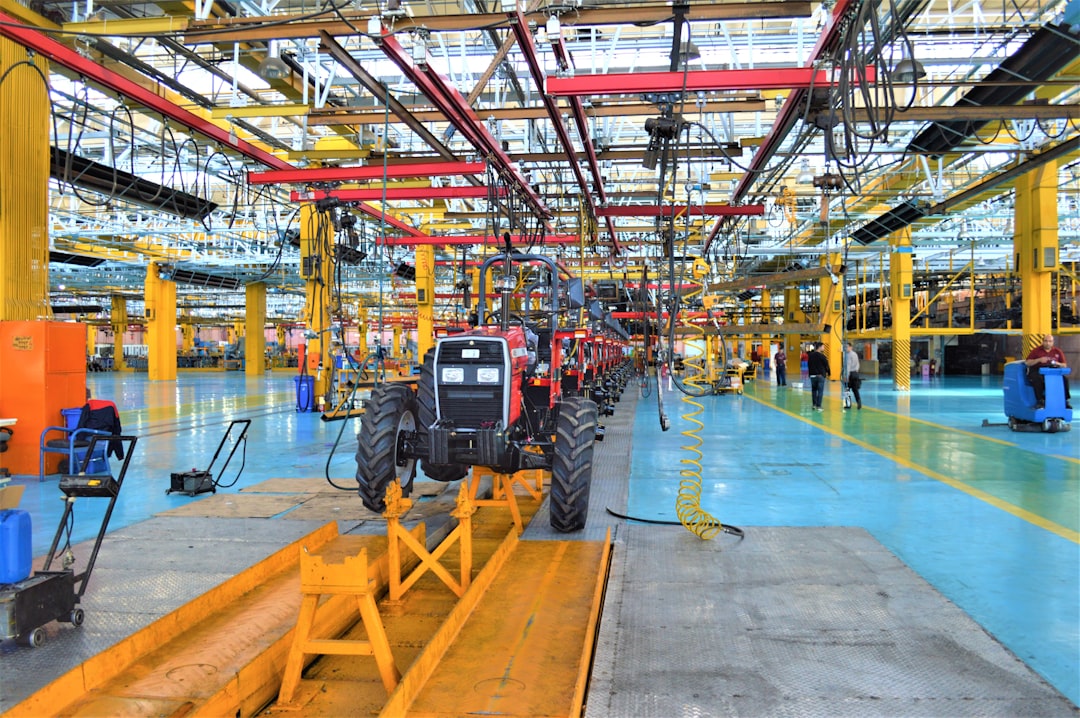Introduction
In today’s fast-paced and ever-evolving world, the manufacturing industry is constantly looking for ways to improve efficiency, productivity, and overall performance. One such way that has gained significant attention in recent years is smart manufacturing, also known as Industry 4.0. Smart manufacturing solutions involve the use of advanced technologies such as artificial intelligence, Internet of Things (IoT), and big data analytics to optimize processes and make factories more connected and intelligent. However, implementing these solutions in traditional factories comes with its own set of challenges. In this blog post, we will explore some of the hurdles that manufacturers face when trying to adopt smart manufacturing technologies in their existing facilities.
Lack of infrastructure
One of the biggest challenges that traditional factories face when implementing smart manufacturing solutions is the lack of infrastructure to support these advanced technologies. Many older factories were built decades ago and simply do not have the necessary infrastructure in place to accommodate the high-speed internet connections, data storage capabilities, and other requirements of smart manufacturing systems. Upgrading this infrastructure can be costly and time-consuming, and many manufacturers may not have the resources or expertise to do so.
Resistance to change
Another major challenge to implementing smart manufacturing solutions in traditional factories is the resistance to change from workers and management. Many employees may be hesitant to embrace new technologies and processes, fearing that they will be replaced by machines or that their jobs will become more difficult. Management may also be reluctant to invest in new technologies without a clear understanding of the potential return on investment. Overcoming this resistance to change requires effective communication, training, and support from leadership to help employees understand the benefits of smart manufacturing and how it can help them perform their jobs more efficiently and effectively.
Integration with existing systems
Traditional factories often have complex and customized systems in place that have been developed over many years to meet specific production requirements. Integrating smart manufacturing solutions with these existing systems can be a significant challenge, as these systems may not be designed to work together or share data easily. Manufacturers may need to invest in new software and hardware to make their systems compatible with smart manufacturing technologies, and this can require significant time and resources.
Data security and privacy concerns
As smart manufacturing solutions rely on the collection and analysis of vast amounts of data from various sensors and devices, data security and privacy concerns become a major issue for traditional factories. Protecting sensitive production data from cyber threats and ensuring compliance with data privacy regulations are critical considerations when implementing smart manufacturing technologies. Manufacturers must invest in robust cybersecurity measures, data encryption, and secure communication protocols to safeguard their valuable information and prevent unauthorized access or data breaches.
Cost considerations
Cost is always a key factor when implementing new technologies in any industry, and smart manufacturing solutions are no exception. The initial investment required to deploy smart manufacturing technologies in traditional factories can be substantial, as it involves purchasing new equipment, software, and infrastructure, as well as training employees on how to use these technologies effectively. Manufacturers must carefully weigh the costs and benefits of implementing smart manufacturing solutions and develop a clear business case to justify the investment.
Skills gap
Another challenge that traditional factories face when implementing smart manufacturing solutions is the skills gap among their workforce. Many employees may lack the necessary technical skills and knowledge to operate and maintain advanced technologies such as IoT devices, cloud computing platforms, and data analytics tools. Manufacturers must invest in training and upskilling programs to ensure that their employees are equipped with the skills they need to successfully implement and manage smart manufacturing solutions.
Regulatory compliance
Compliance with industry regulations and standards is a critical consideration for manufacturers when implementing smart manufacturing solutions. Traditional factories must ensure that their smart manufacturing technologies meet the requirements of regulatory bodies such as OSHA, EPA, and FDA, as well as industry-specific standards such as ISO 9001 and ISO 14001. Failure to comply with these regulations can result in fines, legal action, and damage to the company’s reputation, so manufacturers must prioritize regulatory compliance when implementing smart manufacturing technologies.
Conclusion
While the benefits of smart manufacturing solutions are undeniable – increased production efficiency, reduced downtime, and improved product quality, to name a few – implementing these technologies in traditional factories comes with its own set of challenges. From infrastructure limitations to resistance to change, data security concerns, and skills gaps, manufacturers must overcome numerous hurdles to successfully adopt smart manufacturing technologies in their existing facilities. By addressing these challenges head-on, investing in the necessary resources and training, and developing a clear strategy for implementation, traditional factories can harness the power of smart manufacturing to stay competitive in today’s rapidly evolving manufacturing landscape.

